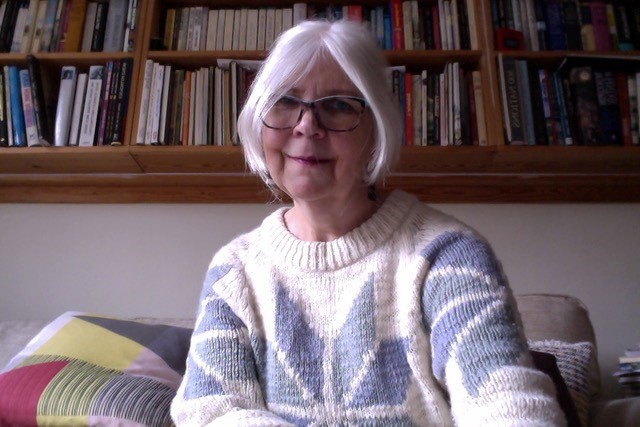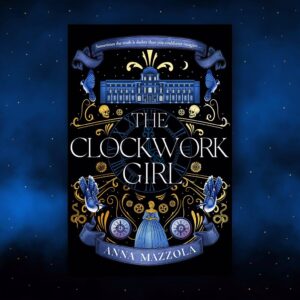From Idea to Bookshelf
How does a novel move from idea in the author’s head to finished product?
We’ve heard about the writer, the literary agent and the editor. Now it’s time for…
STEP 4: THE COPY EDITOR (Sally Partington)

Brief bio
I came to copyediting by a roundabout route. I worked in publishing more or less since leaving university, but I started out in publicity for some time, then marketing. In the early 2000s I was looking after film and television tie-ins for Simon & Schuster, where as well as marketing, I was involved in some commissioning and an increasing amount of hands-on editing. From there I moved over to editorial full time, and eventually, in 2010, I went freelance. Since 2011 I’ve worked mainly for Simon & Schuster, Orion, HarperCollins and, most recently, Transworld at Penguin Random House.
Tell us a bit about your job: what does a copy editor do? What’s the most interesting part?
Copyediting is much more than making sure the grammar and spelling are right. That’s important of course, and the amount of work there is to do on that can vary enormously from book to book. But copyediting also involves fixing the formatting (if it needs fixing): that’s all the things like how the paragraphs are set out, what size dashes are used, single speech marks (inverted commas) or doubles, where the line spaces or section breaks come, and so on. Publishers have different rules about how they like things to be done, and you have to be familiar with the style guide of the publisher you are working for.
There’s also a lot of checking, for instance that all the names are consistent – you’d be surprised how often they’re not – and checking for factual accuracy where appropriate. Obviously there’s a lot of reliance on the author to have got things right, but they can’t know everything. Nor can the copyeditor, but over time you develop a kind of instinct that tells you, Hmm, I should look that up. Plus your own interests can be useful here: for example, I’m a horse person, and I’m often able to say immediately to an author if I spot some minor detail to do with horses that I know is wrong.
Often there’s line editing too – that’s suggesting rewrites for occasional clumsy sentences, or else the copyeditor will just rewrite them themselves: it varies how lightly or how firmly an author will appreciate being edited. Sometimes a publisher will ask you to just go ahead and line edit, sometimes they’ll say, please be sensitive and suggest alternatives instead.
What’s the most interesting thing about it? For me, it’s the variety. I’m lucky in that I copyedit both fiction and non-fiction. For a while I became a go-to person for a number of Second World War diaries. Next thing I knew, I was a go-to person for women’s romantic fiction. I’m a magpie for information, and from the books I’ve copyedited, I’ve learned all sorts of new things, from what it was like to be part of the D-Day Invasion to how to make chocolate or run a florist’s, to techniques of photography to (most unexpected of all) how to go urbexing – exploring old abandoned buildings and industrial sites. I never know what’s coming next, and that’s great.
What else have you been working on?
On the non-fiction front in the past year I’ve worked on a political and architectural history of the royal palaces of the seventeenth century (did I mention that I love history?); a natural history of Madagascar; and a lyrical account of seals in the wild around the British coast. On the fiction front, among other things a tense psychological thriller; a brilliantly ambitious novel in which the same story plays out in three different timelines, with strikingly different consequences (although that was a proofread not a copyedit: the copyeditor on that one, which must have been hugely complex to work on, has done a fantastic job!) and a gorgeous, sweeping literary novel about second-generation Bangladeshi families in Britain and America.
Do you have any advice for someone wanting to work as a copy editor?
Be as well-informed as you can be, not only about the nitty-gritty of grammar and publishing conventions and such, but about anything that interests you, you never know when it might come in useful. Get good at looking stuff up, and judging when a source is accurate: that’s a skill that I’ve found invaluable on so many occasions! And stick at it. It can take a while to get where you want to be, but there is a lot of copyediting work out there, and plenty of online information and advice, and if you are good at it, you will find your niche.
Tell us something about your work on The Clockwork Girl.
I’m the kind of reader who gets fully immersed in the world of the novel, but it has to be sufficiently well done for that to happen, as small inaccuracies can take the reader out of it. From the very first page of The Clockwork Girl I was one hundred per cent in the streets of eighteenth-century Paris. I thought, Oh, I’m going to love working on this book. And I did. There was very little work to do on grammar and punctuation; the manuscript was so well written and was delivered beautifully clean.

